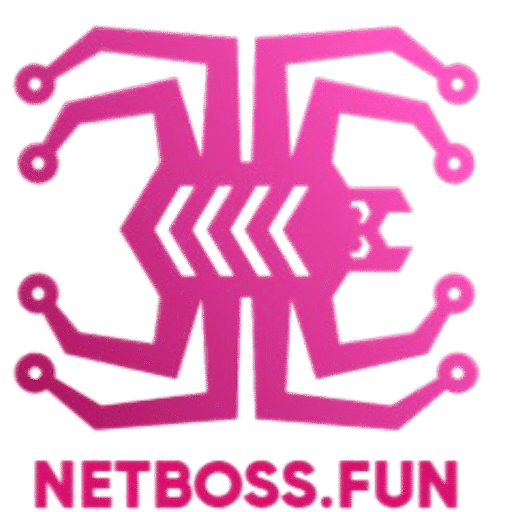Understanding Your Goals
The journey into programming can be both exciting and daunting, making it essential to begin with a clear understanding of your personal and professional goals. Defining these objectives not only guides your educational choices but also helps you to remain motivated throughout the learning process. Start by assessing your interests; consider what aspects of programming intrigue you the most. Do you find web development captivating, or are you more inclined towards data science or software engineering? Identifying your specific interests will help streamline your course selection and ensure that you engage with content that resonates with you.
Another crucial factor in understanding your goals is to contemplate your desired career path. Different areas of programming can lead to varied job roles, each with its unique skill requirements. For example, web developers often need proficiency in HTML, CSS, and JavaScript, while data scientists may focus more on statistical analysis and machine learning. By identifying the career that excites you, you can select courses that equip you with the essential skills and knowledge needed for that profession.
Additionally, setting both short-term and long-term goals is vital for navigating your programming education effectively. Short-term goals might include completing a specific course or mastering a programming language, whereas long-term goals could encompass securing a particular job or advancing into a specialized field within programming. These goals will help to create a roadmap, making it easier to track your progress and adjust your learning path as necessary. Ultimately, a strategic approach to defining your goals will lead to more fruitful and satisfying learning outcomes in your programming journey.
Evaluating Course Options
When embarking on a programming journey, selecting the appropriate course can significantly impact one’s success and learning experience. There are various types of programming courses available, including online classes, coding bootcamps, and traditional degree programs. Each option has unique advantages and disadvantages that are important to consider carefully.
Online classes provide flexibility, allowing learners to study at their own pace and on their schedules. This format is often more affordable than traditional education and offers a wide range of topics, from basic programming concepts to advanced algorithms. However, the self-directed nature of online learning requires discipline and motivation, which may pose challenges for some individuals.
Coding bootcamps, on the other hand, are intensive, short-term programs designed to immerse students in programming languages and skills within just a few months. These courses are highly focused and often taught by industry professionals, providing practical experience. Nevertheless, they typically have a higher upfront cost and require a significant time commitment. Students seeking an accelerated path into the workforce may find bootcamps appealing, but they may lack the depth and breadth of knowledge offered in traditional degree programs.
Traditional degree programs, such as a Bachelor’s in Computer Science, provide a comprehensive education that covers not only programming but also computer theory and problem-solving techniques. While these programs can take several years to complete and may entail a higher financial investment, they often result in more robust career opportunities. Additionally, degrees may offer internships and networking opportunities, which can further enhance employability.
To ensure you choose a reputable course, researching platforms and institutions is crucial. Look for reviews, alumni testimonials, and accreditations. Scrutinize the course content and curriculum to verify that it aligns with your desired goals. By carefully evaluating these factors, you can select the programming course that best fits your needs and aspirations.
Practical Skills and Real-World Projects
In the ever-evolving landscape of technology, acquiring practical skills and engaging in real-world projects are essential components of a comprehensive programming education. While theoretical knowledge serves as a foundation, it is the hands-on experience that truly equips individuals with the tools they need to excel in the tech industry. When selecting a programming course, it is crucial to consider aspects that facilitate practical application of learned concepts.
Courses that emphasize coding practice, such as those incorporating interactive coding exercises, are invaluable. These exercises allow learners to apply their theoretical understanding immediately, reinforcing their skills. It is advisable to seek programs that offer simulated environments where students can troubleshoot issues, thereby mimicking scenarios they might face in real-life settings.
Collaborative projects also play a significant role in this practical training. Engaging with peers fosters teamwork, an essential skill in the professional world, where software development is often a collective effort. When evaluating potential courses, look for those that encourage group work, enabling participants to collaborate on coding tasks, share knowledge, and combine their diverse skill sets to create projects that are both functional and innovative.
Furthermore, portfolio development is an integral outcome of practical programming courses. A well-structured program should guide learners in building a portfolio that showcases their projects. This portfolio not only highlights their technical abilities but also serves as tangible evidence of their practical experience to potential employers. By applying programming concepts in real-world scenarios, students can create projects that solve actual problems, making them more appealing candidates in the job market.
In summary, the selection of a programming course should prioritize those that offer substantial opportunities for acquiring practical skills, engaging in collaborative projects, and developing a strong portfolio. These elements collectively enhance the learning process, preparing individuals for successful careers in programming.
Continuous Learning and Community Engagement
In the rapidly evolving landscape of programming, continuous learning has become a cornerstone for success. The technology sector is characterized by constant innovations, emerging programming languages, and developed frameworks. Therefore, viewing education as a lifelong journey is essential for anyone aspiring to remain relevant in this field. Various resources are available to help programmers refine their skills, acquire new techniques, and adapt to changing demands. Online courses, webinars, and coding bootcamps are just a few examples of how one can pursue further education.
Moreover, community engagement plays a significant role in enhancing one’s programming abilities. Participating in local meetups, hackathons, online forums, and technology conferences can foster a sense of belonging while offering opportunities to collaborate with like-minded individuals. By engaging with the community, programmers can stay updated about the latest trends, tools, and best practices. Networking not only enriches one’s skill set but can also lead to career advancement or mentorship opportunities, which can be invaluable as one navigates through the complexities of the tech world.
Forums such as Stack Overflow and GitHub serve as excellent platforms for knowledge sharing. These forums enable users to seek help with coding issues, share their projects, and collaborate on open-source endeavors. Engaging in such communities can help foster relationships with experienced developers who can offer insights and resources for professional growth. In addition, various online platforms exist, such as Meetup or Eventbrite, where local tech events are announced. Participating in these gatherings fosters an environment conducive to learning, where individuals can share their knowledge while enhancing their skills through interaction.
In conclusion, embracing a mindset of continuous learning and actively participating in the programming community is critical in staying competitive. By consistently updating skills and engaging with peers, programmers can create a robust network that supports their career aspirations while enriching their professional journeys.


No responses yet